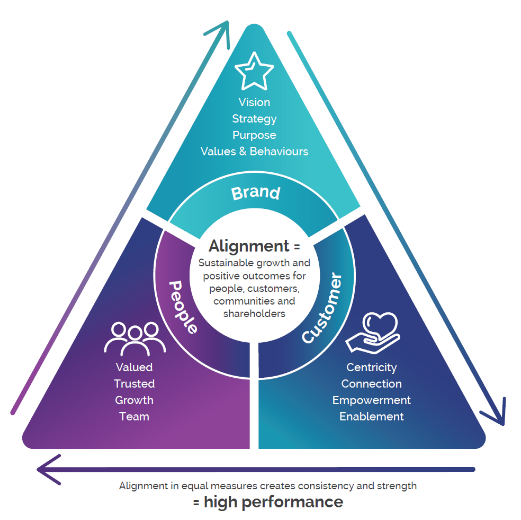Culture Intelligence: A strategic necessity for today’s leaders
- dragonfish
- Oct 27, 2025
- 2 min read

For leaders navigating today’s complex business environment, as AI becomes part of daily life and expectations from customers and teams soar, one truth is becoming clear: having a static, 5-10 year strategy is no longer enough.
Sustainable success depends on an organisation’s ability to understand, shape, and optimise its culture evolution to keep pace with constant change and transformation.
What is culture intelligence?
Wherever there are people, there is a culture. Culture can make or break business success. You can only harness the potential of culture by understanding, shaping, and being intentional about how, as an organisation, it shows up every day. To amend the well known quote; ‘you either intentionally manage culture to drive strategic outcomes or it shapes itself organically, regardless of what you aim to achieve.’
This is where culture intelligence comes in, the practice of assessing and measuring how internal and external stakeholders experience your organisation and using that insight to prioritise within decision-making.
Historically, engagement surveys have been used as the closest approximation to culture assessment, but they are one-dimensional, focusing on employee's experience at work. True culture intelligence offers leaders a deeper, data-driven view of the wider, culture forces that shape performance, innovation, and retention (these go beyond engagement). To explore these forces in more detail, check out the dragonfish whitepaper to understand the signatures of high-performing cultures https://www.dragonfishuk.com/research).
Why leaders can’t ignore it
Retention and engagement
As competition for top talent intensifies and employee expectations evolve, the old levers of engagement are no longer enough. Today’s leaders need a deeper, more dynamic understanding of what’s really shaping their people’s experience. Culture intelligence uncovers the unseen drivers of motivation, belonging, and burnout, helping organisations focus on what truly matters before issues escalate into costly turnover or disengagement.
Performance and accountability
High-performing cultures aren’t born from slogans or values on the wall; they’re built through evidence, insight, and intent. Culture intelligence gives leaders the visibility to see how culture is enabling (or constraining) strategic performance. It moves culture from being a “soft” concept to a measurable business asset, one that fuels accountability, clarity, and results.
Reputation and resilience
In a world where trust can be lost in a headline, reputation is built from the inside out. Customers, investors, and employees all expect transparency and integrity, and they can tell when culture doesn’t match the story. Culture intelligence empowers leaders to evidence impact, close perception gaps, and strengthen the organisation’s ability to adapt with confidence when the unexpected hits.
So what does this mean in reality?
For today’s leadership teams, culture intelligence isn’t just a diagnostic tool; it’s a strategic necessity. It turns people and customer insight into business strategy, helping leaders see not only what’s happening across their organisation, but why, and how to respond in ways that strengthen both culture and commercial performance.
By embedding culture intelligence into decision-making, organisations gain the clarity and confidence to adapt faster, lead with purpose, and sustain growth through change. In a landscape defined by disruption, those who understand their culture deeply are the ones who stay ahead.
If you'd like to know more about how culture intelligence could help you to strengthen your cultural agility, reach out and ask us about our culture intelligence service, Lumin.
Learn more here: https://lumininsights.io/





Comments